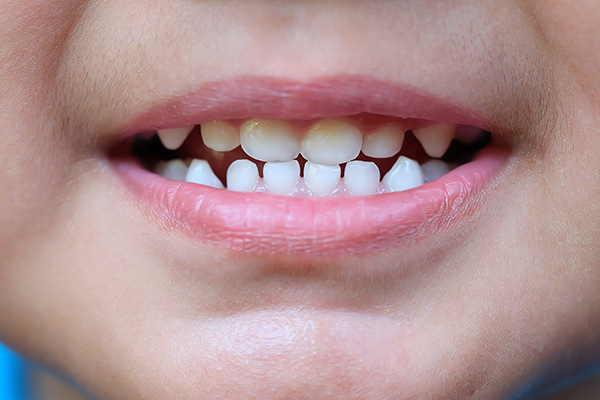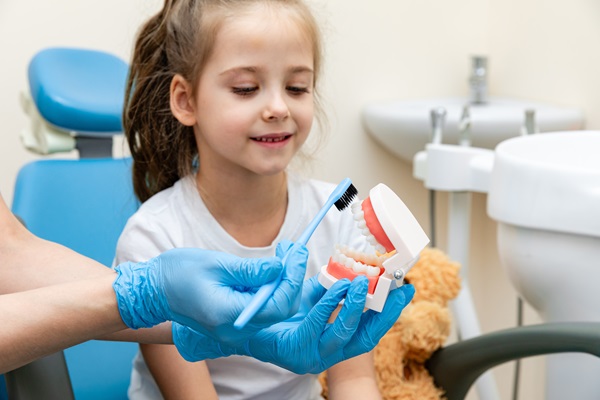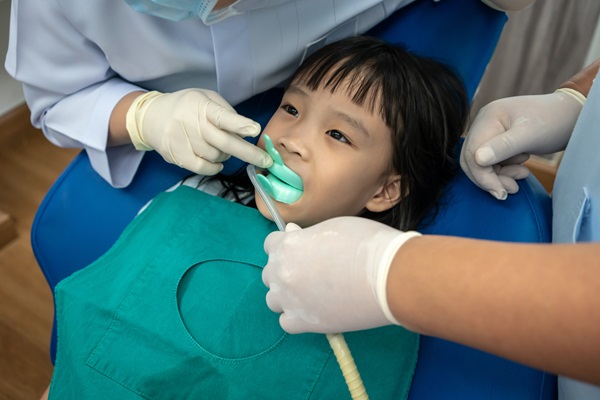 Two of the most common pediatric dental treatments for cavities are fillings and crowns. Both dental fillings and dental crowns offer unique benefits, but one may be preferable to another depending on the specifics of the cavity needing treatment. This review discusses why a pediatric dental professional opts for either a filling or a crown. Read on to learn more about each one and when we might recommend them.
Two of the most common pediatric dental treatments for cavities are fillings and crowns. Both dental fillings and dental crowns offer unique benefits, but one may be preferable to another depending on the specifics of the cavity needing treatment. This review discusses why a pediatric dental professional opts for either a filling or a crown. Read on to learn more about each one and when we might recommend them.
Is a filling or a crown better for a pediatric dental cavity?
Whether or not a filling or a crown is more appropriate for a pediatric dental cavity depends on the severity of the cavity, the location of the tooth, and the patient’s preference. The following is an overview of what a dental filling and dental crown are and how to choose between the two options when it comes to pediatric dental treatment.
What is a dental filling?
A dental filling is an artificial material that is placed in the cavity of a tooth after tooth decay erodes the enamel (the outermost layer of a tooth). There are different material types a pediatric dentist may use for a dental filling. Most commonly, fillings are amalgam or porcelain. Dental fillings are most suitable for small cavities, whereas they may not be enough to address larger cavities or more severe forms of tooth damage.
When is a pediatric dental filling recommended?
We typically recommend a pediatric dental filling when the cavity is minor and does not compromise the overall strength or structure of the decayed tooth. Fillings are often the preferable solution as they are less invasive and should last for the entire lifespan of baby teeth as long as they are well cared for in the long term.
What is a dental crown?
A dental crown, also called a dental cap, is a restoration that encapsulates a dental cavity or broken tooth on all sides. Dental crowns consist of either ceramic, porcelain-fused-to-metal, metal alloy, or gold alloy. The type of material that a pediatric dentist recommends depends on the location of the tooth and the parent’s preference for their child. Crowns are generally recommended when the tooth is more severely damaged or decayed and needs additional protection from further decay or damage.
When is a pediatric dental crown recommended?
A pediatric dental crown may be the recommended restoration if the tooth is damaged more severely or due to dental trauma. Often, we use dental crowns when the tooth is in jeopardy of becoming lost due to how weak it has become from damage or decay. In other words, if the cavity is too severe for a filling, then a dental crown may be the more appropriate solution.
Schedule a pediatric dental visit with our kid-friendly team
Does your child have a cavity or damaged tooth? If so, contact our pediatric dental team today to schedule a visit and determine whether a filling, a crown, or another restoration is right for you.
Request an appointment or call Nett Pediatric Dentistry & Orthodontics at 623-759-7658 for an appointment in our Phoenix office.
Recent Posts
Cavity treatment for kids is a chief concern among parents, and for a good reason. Cavities are common in children of all ages. According to the Centers for Disease Control and Prevention, over half of the kids ages 6 to 8 have had at least one cavity in a primary tooth. The good news is…
Pediatric dentistry focuses on the oral problems that occur in children. Many dental issues in kids are similar to those that occur in adults. Without proper treatment, dental problems can progress to misaligned teeth and poor oral health. If you want to maintain your child’s dental health, here are the common dental issues that pediatric…
In their early years, your youngster is still a novice in brushing and flossing their teeth, meaning that cleaning your child's teeth in that period is your responsibility. Cleaning the teeth is a skill that the child should learn. Your role is to educate your youngster on how to keep their mouths clean and healthy.…


